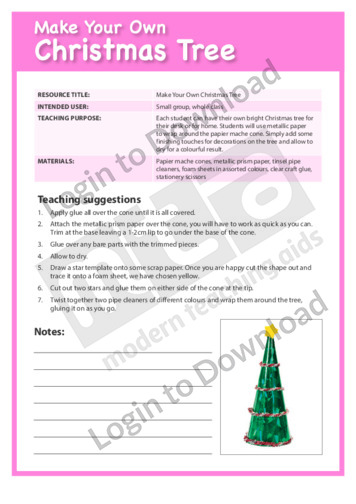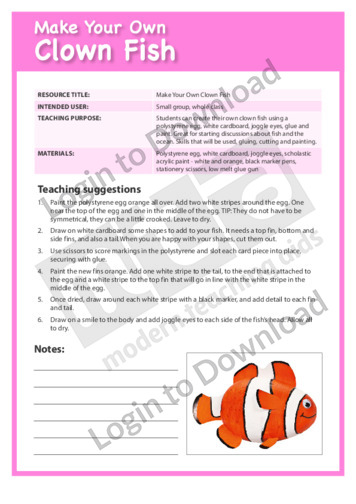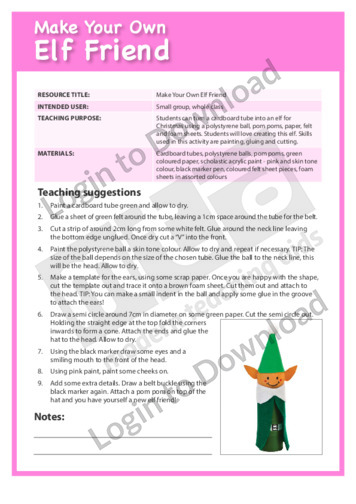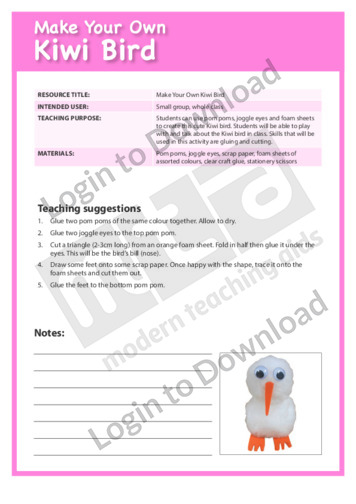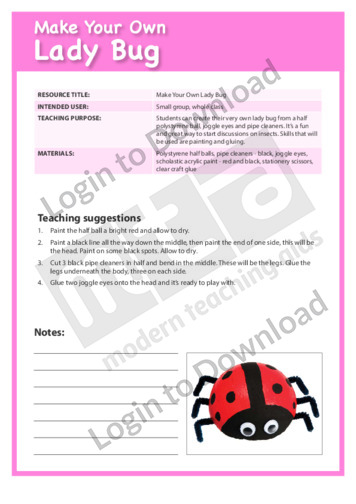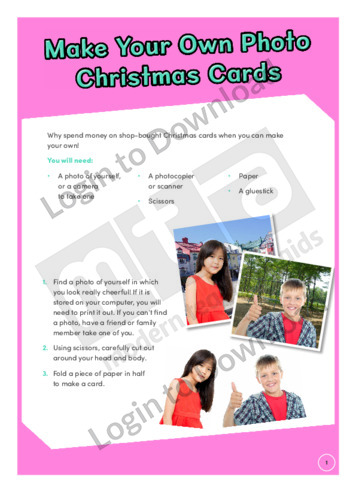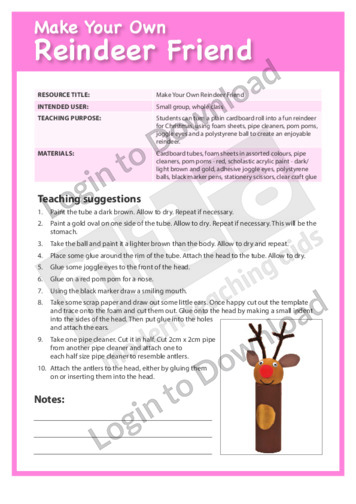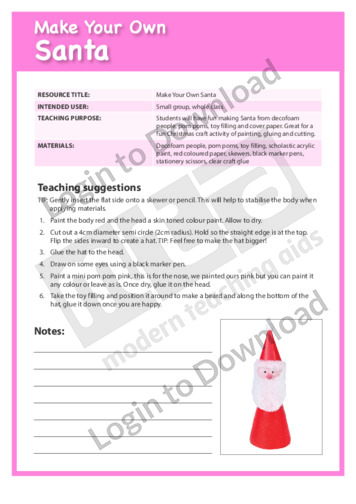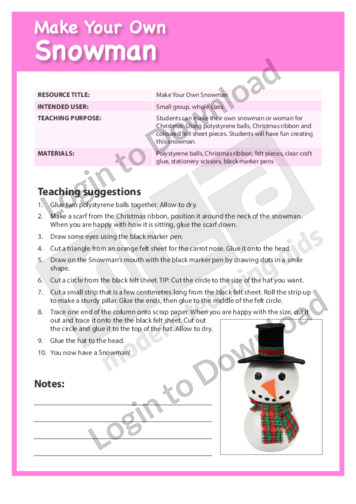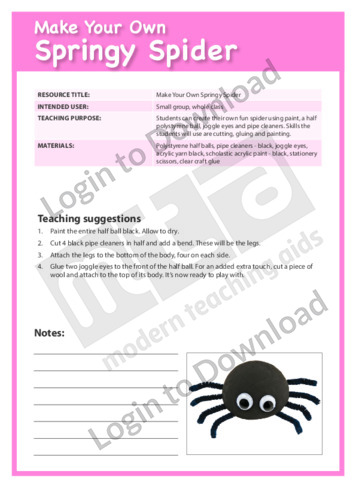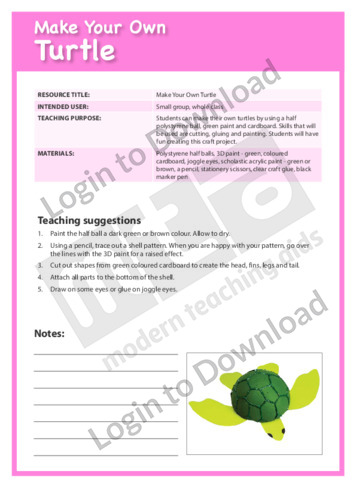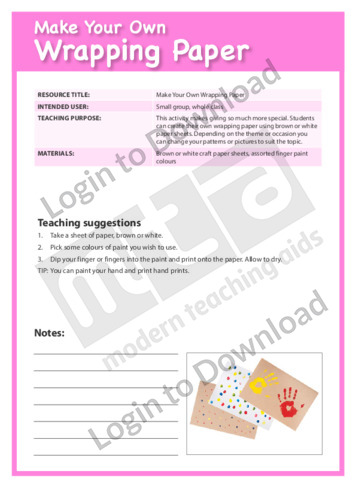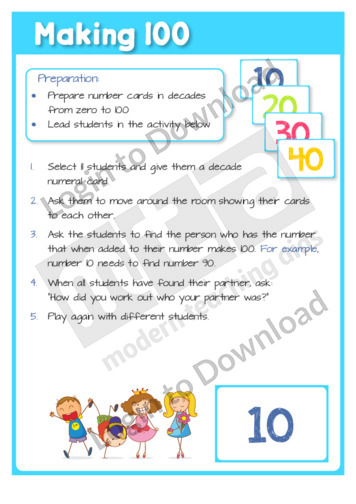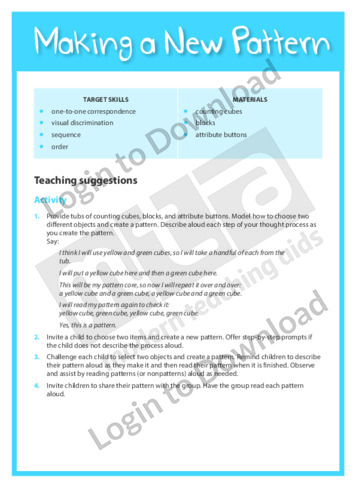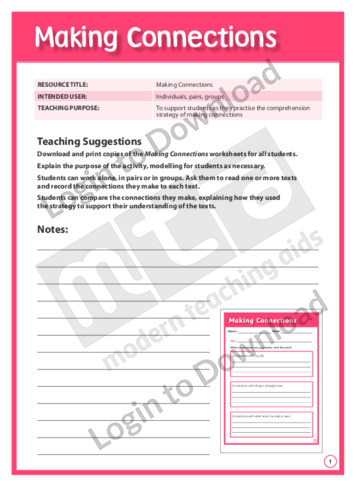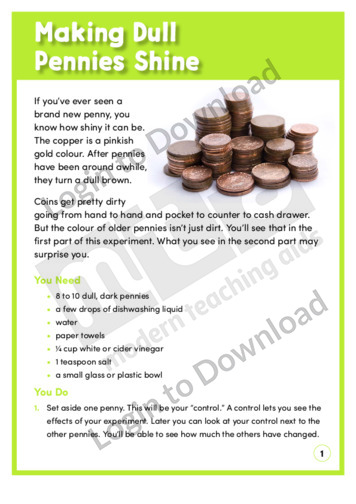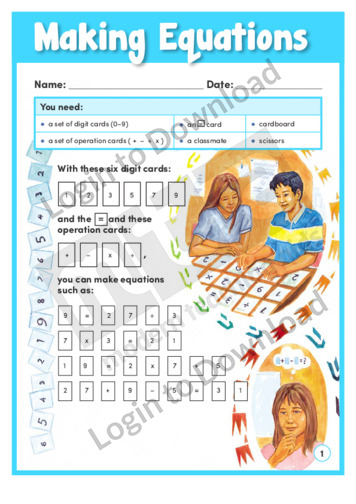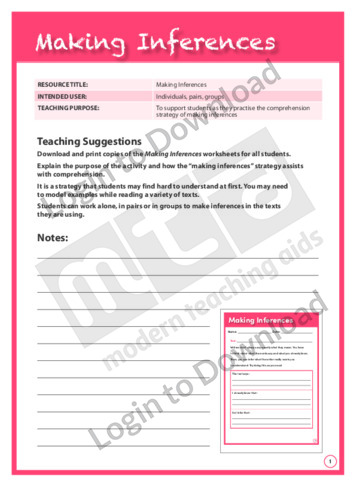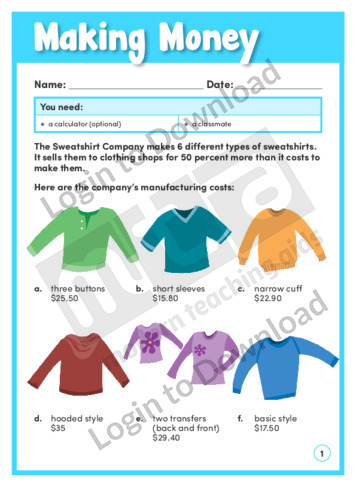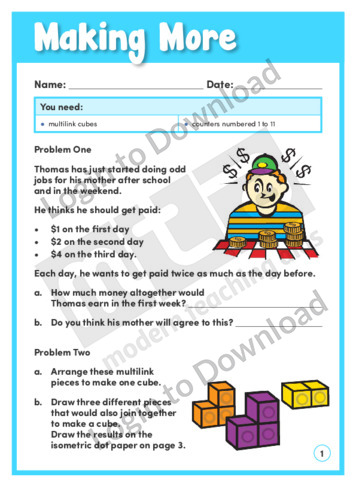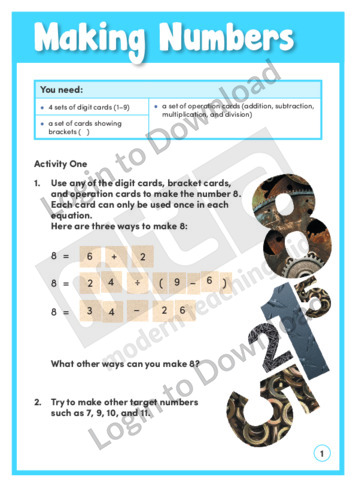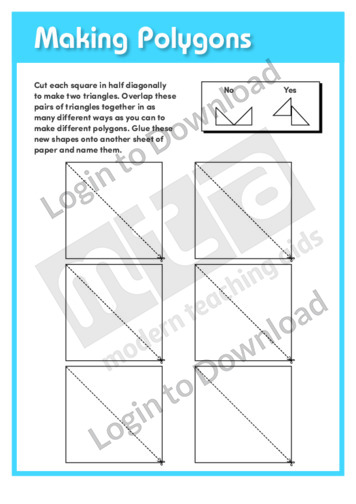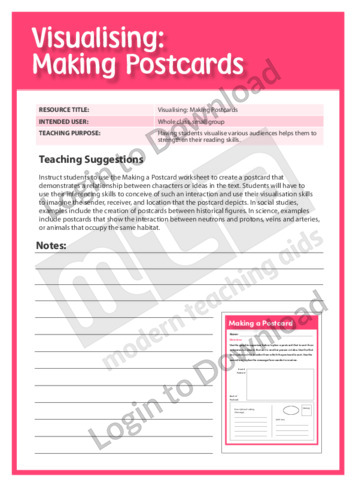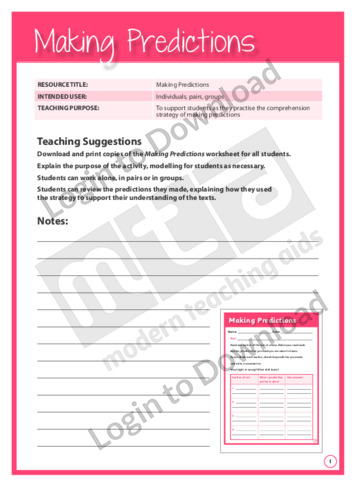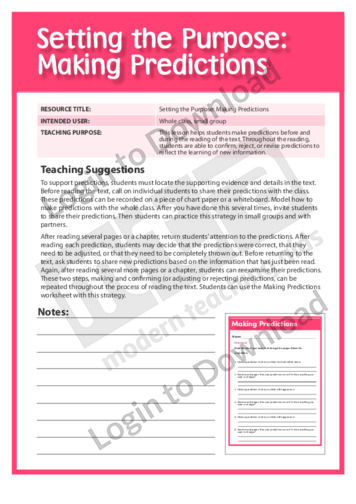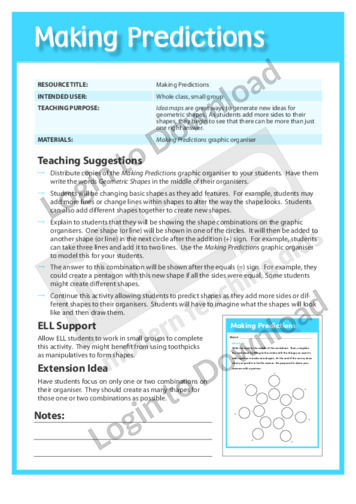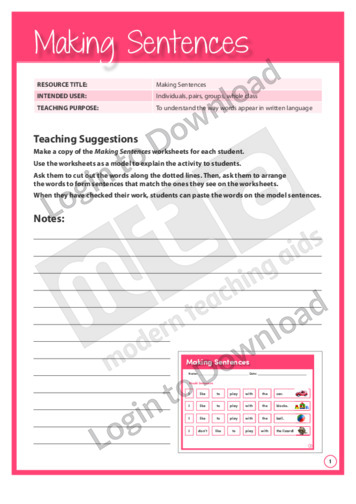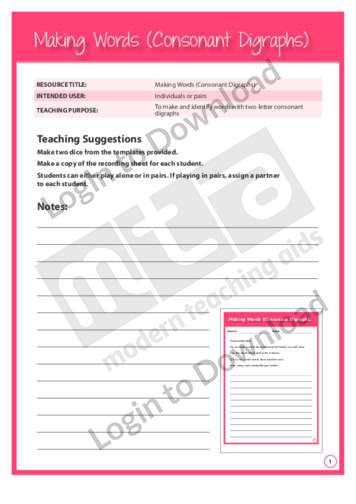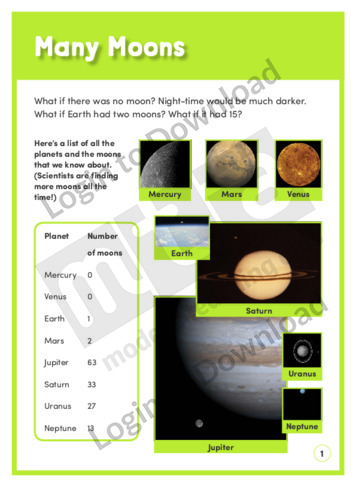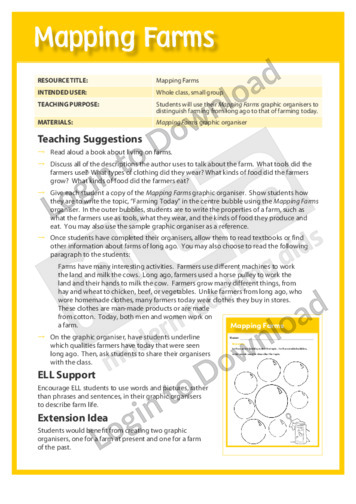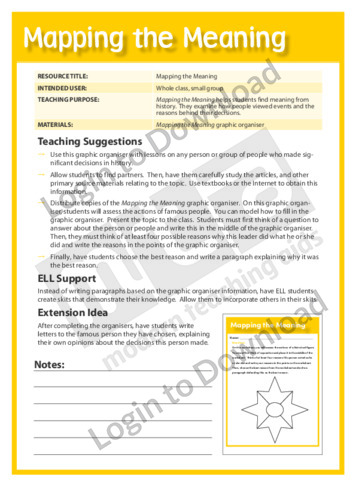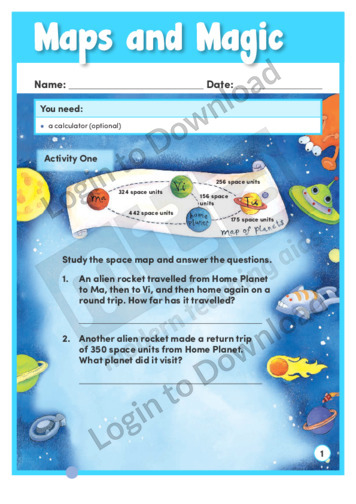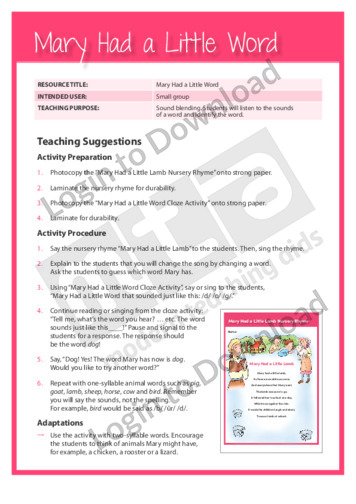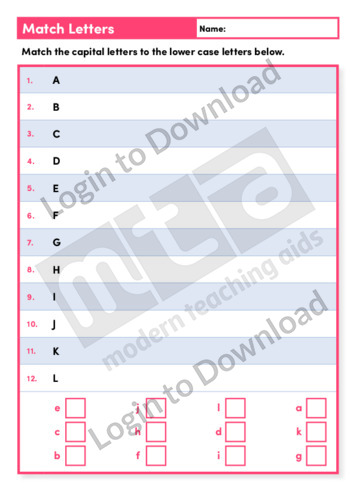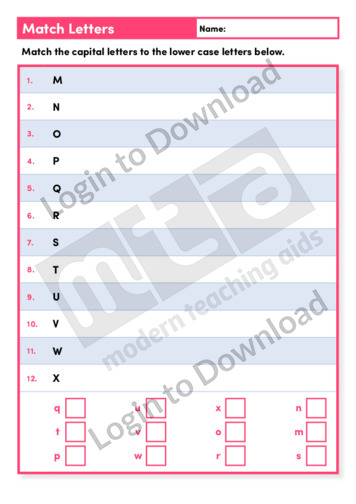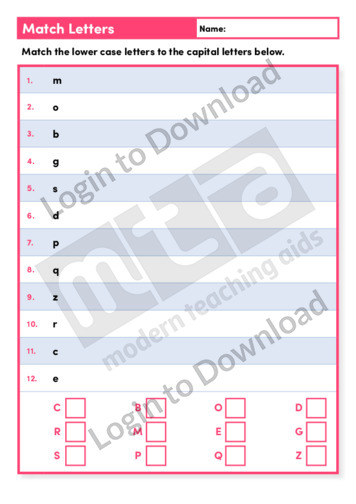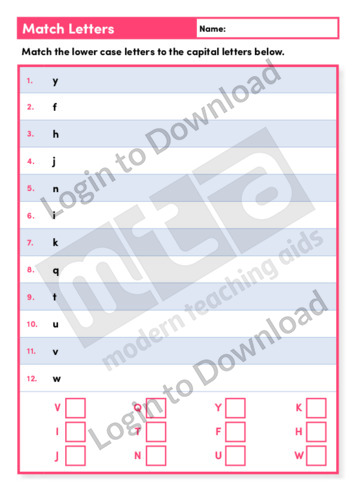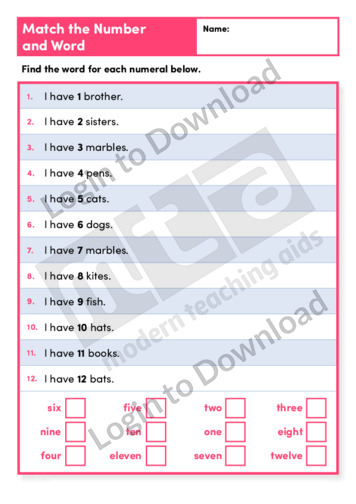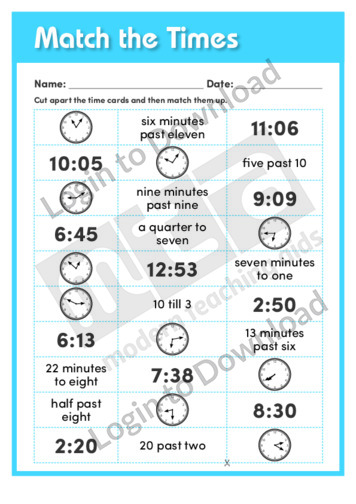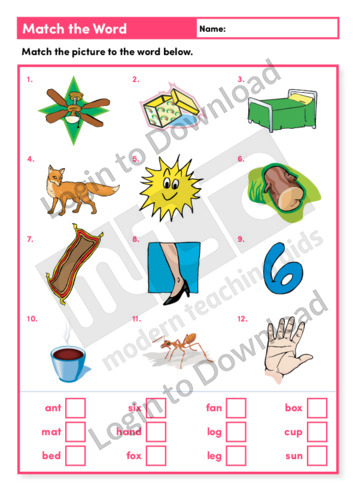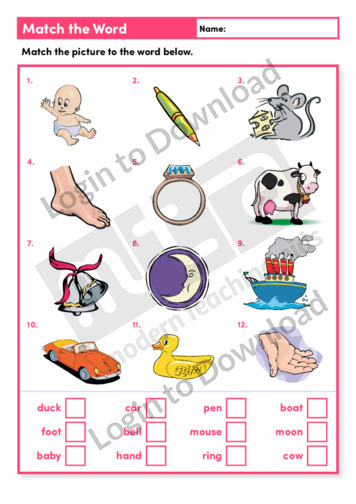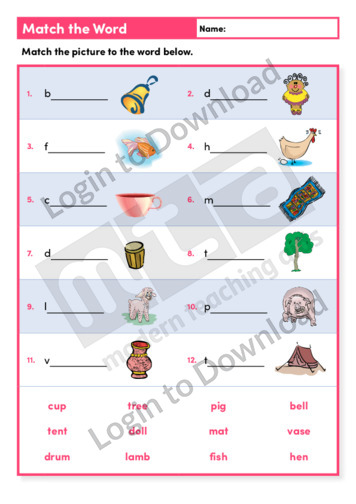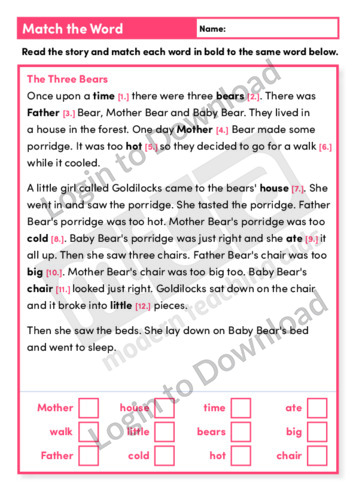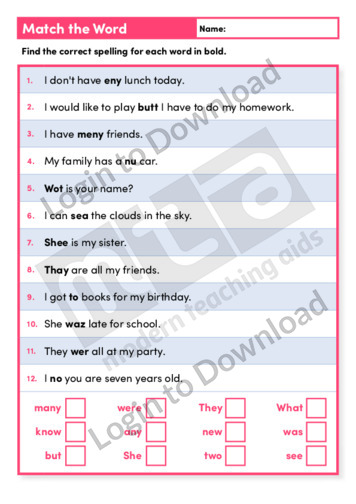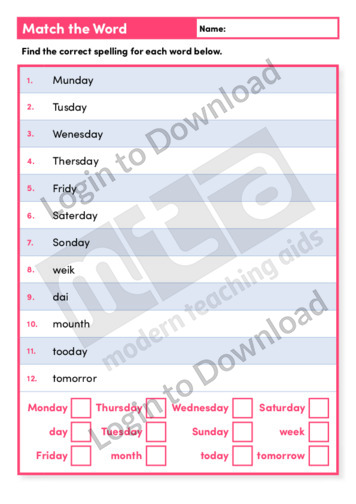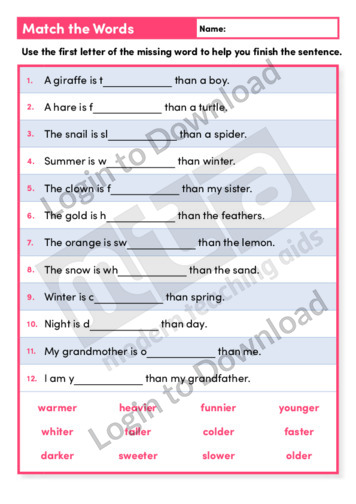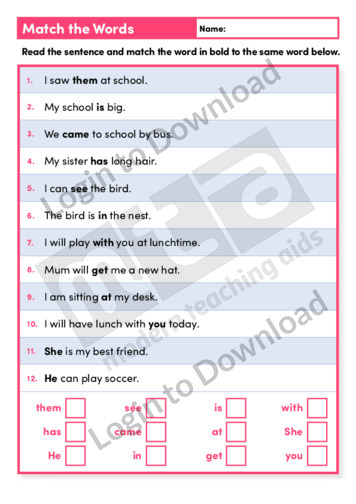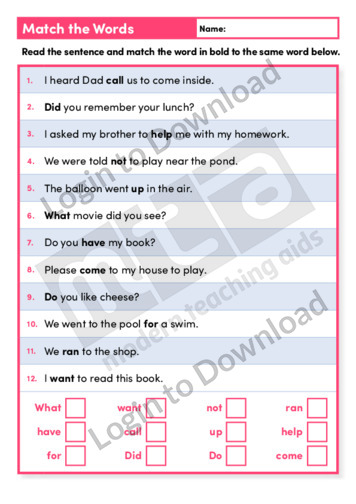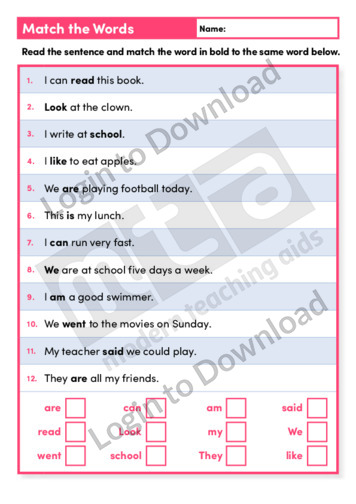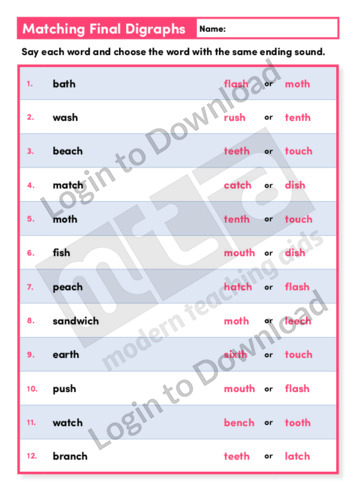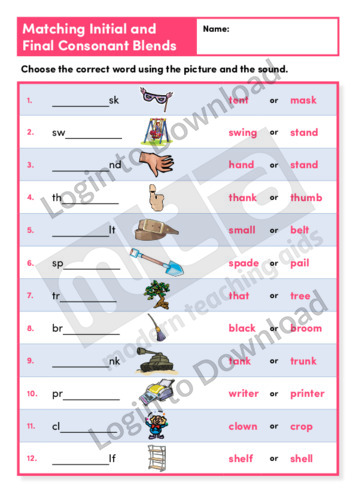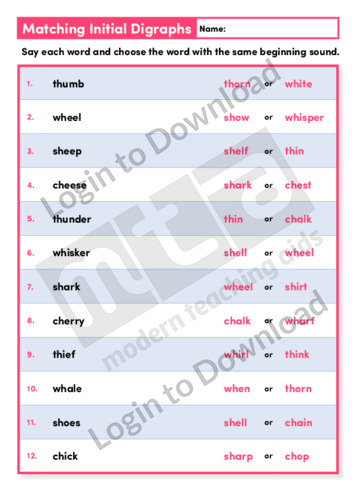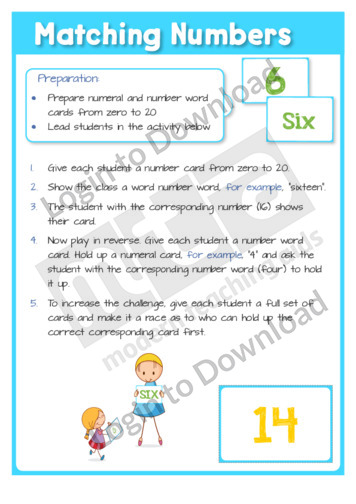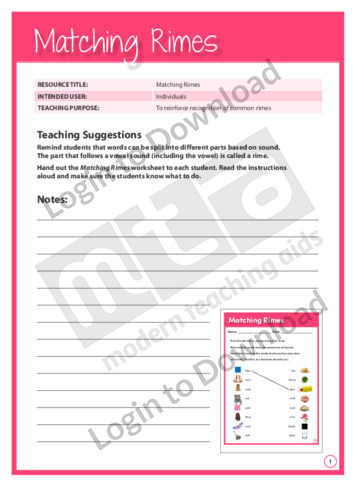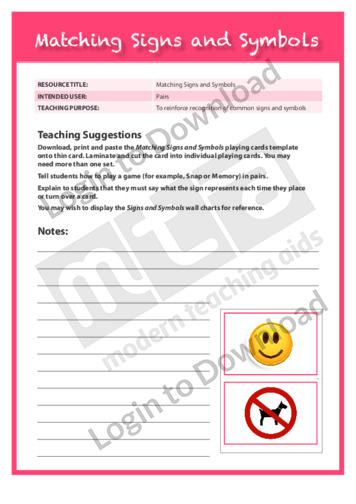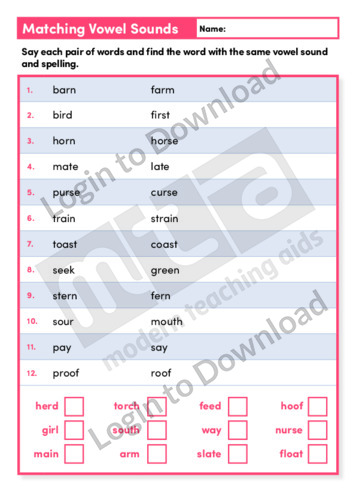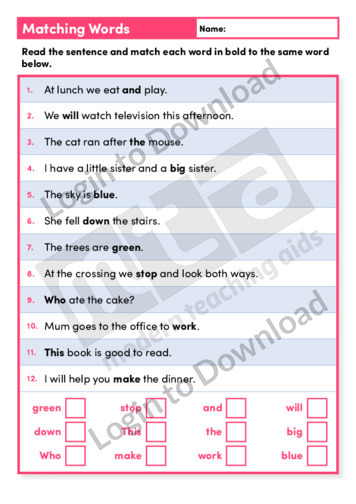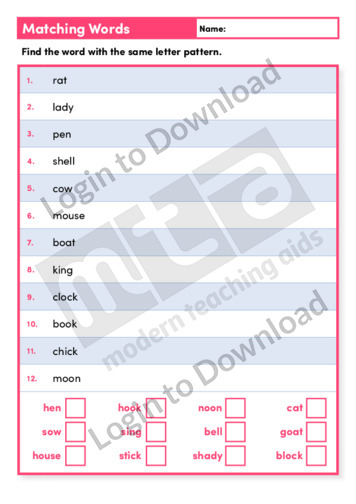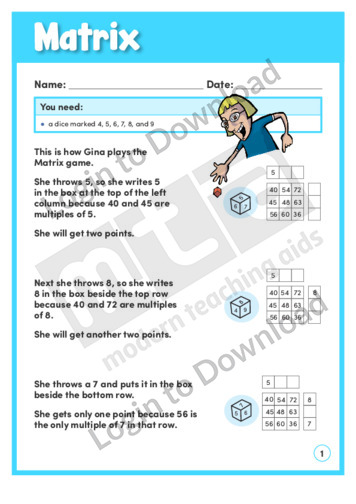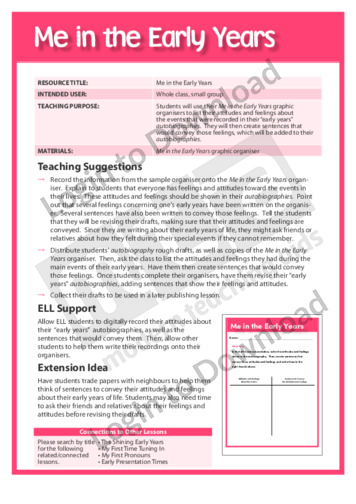This art project, ‘Make Your Own Christmas Tree’ provides instructions for making a Christmas tree figure using a papier mache cone and metallic prism paper.
This art project, ‘Make Your Own Clown Fish’ provides instructions for making a clown fish using a polystyrene egg and paint.
This art project, ‘Make Your Own Elf Friend’ provides instructions for making an elf from craft rolls and coloured paint.
This art project, ‘Make Your Own Kiwi Bird’ provides instructions for creating a little kiwi bird from pom poms.
This art project, ‘Make Your Own Lady Bug’ provides instructions for making a lady bug using a half polystyrene ball and paint.
This hands-on activity, ‘Make Your Own Photo Christmas Cards’ provides step-by-step instructions for students to make and decorate their own Christmas cards. It includes a list of equipment needed and cut-outs of Christmas accessories for students to use on their photo cards and is a fun and creative Christmas classroom activity.
This art project, ‘Make Your Own Reindeer Friend’ provides instructions for making a reindeer from craft rolls and paint.
This art project, ‘Make Your Own Santa’ provides instructions for making a Santa figure using a decofoam figure and different coloured paints.
This art project, ‘Make Your Own Snowman’ provides instructions for making a snowman using polystyrene balls and different coloured paints.
This art project, ‘Make Your Own Springy Spider’ provides instructions for making a spider toy using a half polystyrene ball and paint.
This art project, ‘Make Your Own Turtle’ provides instructions for making a turtle using a half polystyrene ball and paint.
This art project, ‘Make Your Own Wrapping Paper’ provides instructions for creating wrapping paper using plain paper and paint.
This maths activity, ‘Making 100’ develops basic maths skills by encouraging students to practise addition as part of a game played as a class. It includes a set of cards in decades from zero to 100.
This Beginning Maths activity, ‘Making a New Pattern’ encourages students to explore, create and describe their own original patterns using a variety of objects and materials.
This reading comprehension activity, ‘Making Connections’ supports language development by encouraging students to practise the comprehension strategy of making connections. It is aimed at developing students’ awareness of making connections with their life, with things they know, with something they have heard about and with other texts they have seen.
This content area reading activity, ‘Making Dull Pennies Shine’ is a science based reading comprehension exercise encouraging students to follow the procedural steps of an experiment.
The learning activity, ‘Making Equations’ provides practice for students in making equations. They can work in pairs to create sensible equations with the number and operation cards provided. An answer sheet is provided and includes teaching notes with suggestions for supporting learning and further exploration.
This reading comprehension activity, ‘Making Inferences’ supports language development by encouraging students to practise the comprehension strategy of making inferences. Students will infer what writers really want them to understand.
The real-life problems of producing and selling clothes form the basis of this engaging activity, ‘Making Money’. Students must calculate the cost, profit, wholesale, retail and sale prices for a range of sweatshirts. This activity includes comprehensive teaching notes to be read before beginning the activity with students, as they feature useful background information and …More
The learning activity ‘Making More’ contains a variety of short problems for students to solve and discuss. They involve using strategies to calculate money paid for odd jobs, increasing cubic shapes, measuring water, and complete an addition puzzle. An answer sheet is provided and includes teaching notes to support learning and further exploration.
In this learning activity, ‘Making Numbers’ students use various combinations or numbers and operations to make a target value. They have the opportunity to use brackets, an important skill for future learning in algebra. An answer sheet is provided and includes accompanying teaching notes with suggestions for supporting learning and further exploration.
This shape learning activity, ‘Making Polygons’ asks students to practise creating geometric shapes.
This content area reading learning activity, ‘Making Postcards,’ helps students strengthen their reading skills by visualising various audiences. It has students create a postcard that demonstrates a relationship between characters or ideas in the text.
This reading comprehension activity, ‘Making Predictions’ supports language development by encouraging students to practise the comprehension strategy of making predictions.
This content area reading learning activity, ‘Making Predictions,’ helps students make predictions before and during the reading of a text. Throughout the reading, students are able to confirm, reject or revise predictions to reflect the learning of new information.
This reading comprehension activity, ‘Making Sentences’ supports language development by encouraging students to understand the way words appear in written language. It is aimed at developing students’ awareness of sentences through a fun activity in which students form short sentences using jumbled sentences.
This vocabulary activity, ‘Making Words (Consonant Digraphs)’ supports language development by encouraging students to make and identify words with two-letter consonant digraphs. It is aimed at developing students’ awareness of consonant digraphs through a fun activity, which uses dice templates to make words.
This content area reading activity, ‘Many Moons’ is a science based reading comprehension exercise encouraging students to recognise the use of lists as a reading device.
This graphic organiser, ‘Mapping Farms’ allows students to distinguish farming from long ago to that of farming today.
This graphic organiser, ‘Mapping the Meaning’ helps students find meaning from history, looking at how people viewed events and the reasons behind their decisions.
Using the map of planets on this learning activity, ‘Maps and Magic’ students calculate the distances aliens’ rockets travel between planets. In a second activity, they use addition to solve and create magic number triangles. An answer sheet is provided and includes accompanying teaching notes with suggestions for supporting learning and further exploration.
This phonemic awareness activity, ‘Mary Had a Little Word’ supports language development by encouraging students to listen to the sounds of a word and identify the word. It is aimed at developing students’ awareness of sound blending. It provides a Mary Had a Little Lamb nursery rhyme chart and a close activity sheet.
This reading activity, ‘Match Letters’ provides opportunities for practice with matching capital letters to their lower case letters.
This reading activity, ‘Match Letters’ provides opportunities for practice with matching capital letters to their lower case letters.
This reading activity, ‘Match Letters’ provides opportunities for practice with matching lower case letters to their capital letters.
This reading activity, ‘Match Letters’ provides opportunities for practice with matching lower case letters to their capital letters.
This spelling activity, ‘Match the Number and Word’ provides opportunities for practice with matching number words to their numerical forms.
This time and date learning activity, ‘Match the Times’ asks students to practise with digital and analogue time.
This reading activity, ‘Match the Word’ provides opportunities for practice with matching pictures to common words.
This reading activity, ‘Match the Word’ provides opportunities for practice with matching pictures to common words.
This reading activity, ‘Match the Word’ provides opportunities for practice with matching pictures to common words.
This reading activity, ‘Match the Word’ provides opportunities for practice with matching words within paragraphs to those in a list.
This spelling activity, ‘Match the Word’ provides opportunities for practice with correcting wrongly spelt words within sentences.
This spelling activity, ‘Match the Word’ provides opportunities for practice with correctly spelling the days of the week.
This reading activity, ‘Match the Words’ provides opportunities for practice with finding the word to complete the sentence.
This reading activity, ‘Match the Words’ provides opportunities for practice with reading sentences and matching words.
This reading activity, ‘Match the Words’ provides opportunities for practice with reading sentences and matching words.
This reading activity, ‘Match the Words’ provides opportunities for practice with reading sentences and matching words.
This phonics activity, ‘Matching Final Diagraphs’ encourages students to say each word and choose the word with the same ending sound.
This phonics activity, ‘Matching Initial and Final Consonants Blends’ encourages students to choose the correct word using the picture and the sound.
This phonics activity, ‘Matching Initial Diagraphs’ encourages students to say each word and choose the word with the same beginning sound.
This maths activity, ‘Matching Numbers’ develops basic maths skills by encouraging students to practise matching numerals and number words as part of a game played as a class. It includes a set of numeral and number word cards from zero to 20.
This phonemic awareness activity, ‘Matching Rimes’ supports language development by encouraging students to recognise and match common rimes. It is aimed at developing students’ awareness of rimes through a fun matching activity.
This written language activity, ‘Matching Signs and Symbols’ supports language development by encouraging students to build and reinforce instant recognition of common signs and symbols. It is aimed at developing students’ awareness of signs and symbols through a fun activity in which the students play a game such as Snap or Memory.
This phonics activity, ‘Matching Vowel Sounds’ encourages students to say each pair of words and find the word with the same vowel sound and spelling.
This reading activity, ‘Matching Words ‘ provides opportunities for practice with reading sentences and recognising particular words within them.
This spelling activity, ‘Matching Words’ provides opportunities for practice with recognising similar letter patterns.
Matrix’ is a game for one or more players. It gives students practice in quickly identifying common multiples of a single-digit number. It also gives them opportunities to challenge themselves to match and beat their own scores. An answer sheet is provided and includes teaching notes with suggestions for supporting learning and further exploration.
This graphic organiser, ‘Me in the Early Years’ supports students in editing and revising their autobiographical writing, focusing on conveying feelings and attitudes in their text.
It�s that easy!

